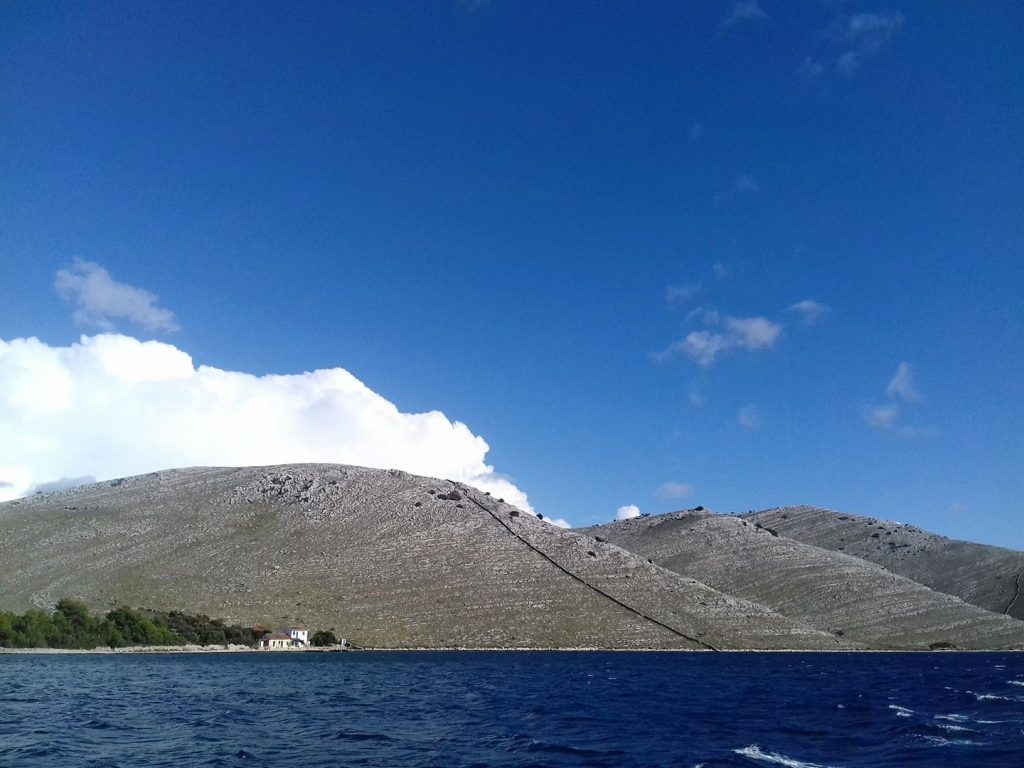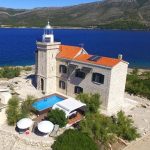If I had a writer’s equivalent of a swear jar and popped a couple of coins in it every time I called something remarkable or unforgettable… what a shopping spree it would be.
An experienced tour guide recently told me it’s best to refrain from superlatives when describing a tourist destination. You might think the Adriatic is the most beautiful sea in the world, she said, and I can think so as well – but who says our guests are required to share the same opinion? They might’ve been to all the seas in the world. They might have another favourite. That doesn’t mean they won’t cherish the new experience, but it’s not our place to force our mosts and bests on them.
In fact, it’s not only superlatives we should avoid, but all displays of enthusiasm and exaggerated praise in general. Leave it to people to decide for themselves whether they think something is gorgeous, or amazing, or incredible. Stick to the facts and weave them into a captivating story, not an overzealous promotional flyer.
I thought about my mosts and bests and amazings and incredibles, and I laughed.
Being a travel writer – or a blogger, tourism journalist, content creator, advertising specialist, you name it – entails resorting to flamboyant adjectives whether you like it or not. If you’re writing about a certain destination, historical site, cultural monument or event, and you truly consider it worthy of visiting, you’ll praise it on instinct. There’s nothing wrong with that; after all, it’s your job to promote places worth promoting, and you have to grab the readers’ attention in some way. An occasional amazing or incredible won’t hurt anybody – it’s only when you’ve been doing this type of work for a while that you’ll start noticing a pattern, realising you’re sticking to the same language no matter what you’re talking about. I’m sure most people in the same line of work have thought about this at least once or twice, and I’ll be the first to admit I’m very guilty of being somewhat repetitive regarding my choice of words.
Let’s have a look at some leading overused terms – at least in my book:
1. Stunning
The crown cliché in my adjective palette, the one my mind first goes to when I’m trying to convey some scenery out there is more than just lovely. Everything is stunning. Waterfalls? Stunning. Lakes and rivers? Stunning. That mountaintop? Definitely stunning. Islands, historical sites, fields, national parks, all stunning. With the amount of stunning sights tourists are assured to come upon during their holiday in Croatia, it’s a miracle some of them don’t end up in a psych ward, worn down by being so intensely stunned to their core all the time. I’m kidding, of course – the redeeming factor in this case is that all the sights in question are, in fact, stunning. What can you do.
2. Astonishing
What you can do is consult a thesaurus every once in a while to find a convenient replacement for a term you’ve been using so much, it should be left to rest for a while. So you replace stunning with astonishing, and a couple of weeks later, you start feeling even more guilty. You go back to stunning.
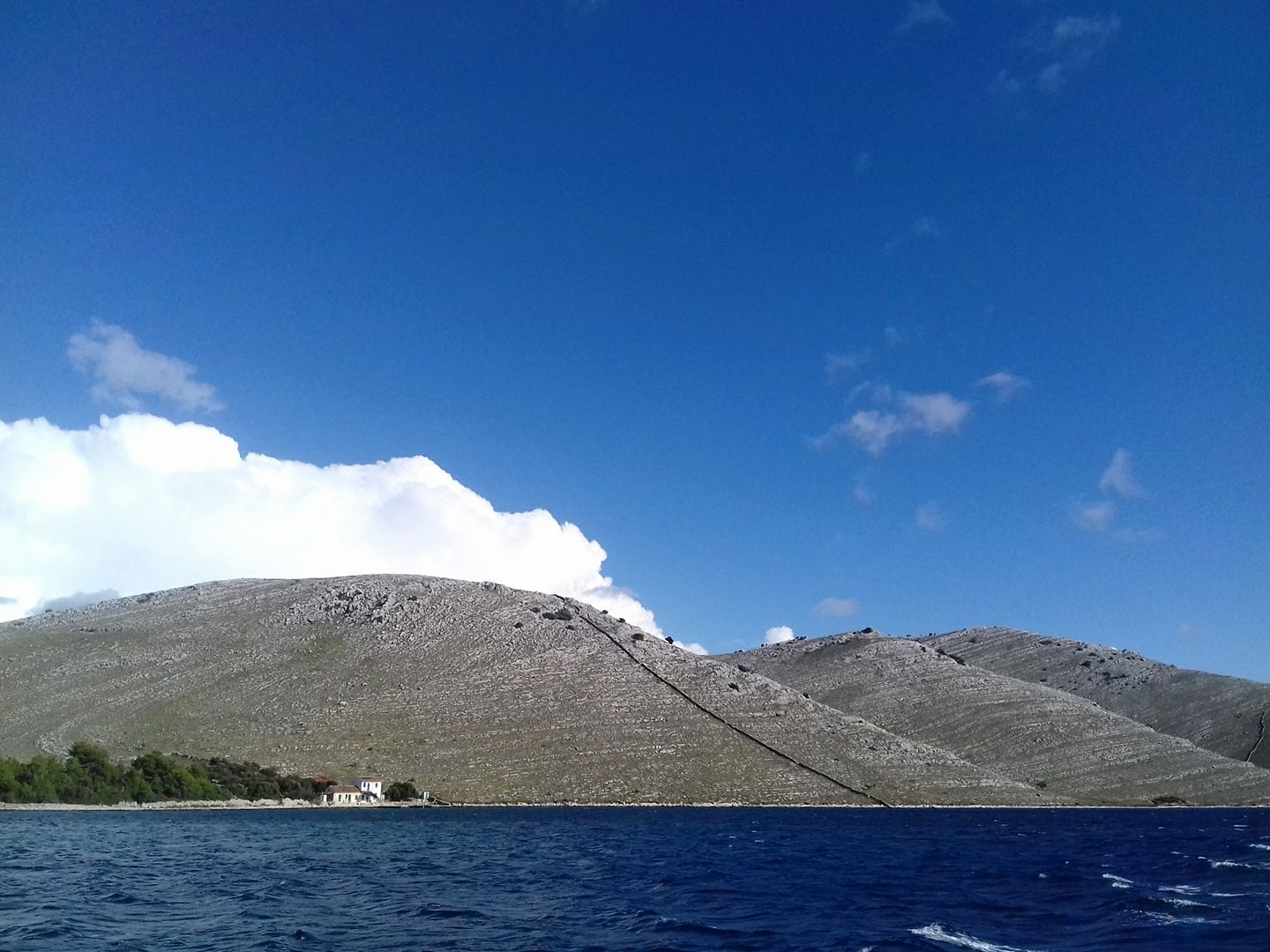
Kornati National Park – a stunning sight if there’s ever been one.
3. Authentic
Sex might be what’s selling in marketing, but authentic is what sells in tourism. Doesn’t everyone want an authentic experience when they’re travelling someplace they haven’t been before? Local cuisine, traditions, customs, folklore, culture, take your pick – we all want to get a taste of the very thing that makes a certain destination unique. Croatia’s very lucky in that regard, as our culture is heavily based on tradition, we really do have a lot of precious heritage to our name, and we can offer our visitors a well-rounded experience which won’t feel in any way artificial. So no, you won’t be lying or exaggerating when you call something authentic – you’ll just have to make peace with the fact you’ll be doing it quite a lot. Oh, speaking of…
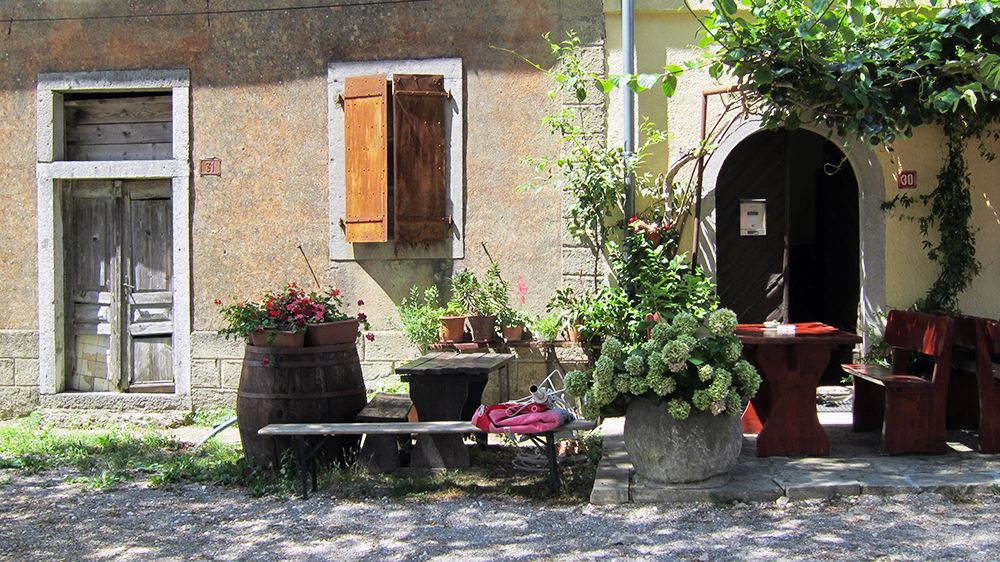
4. Indigenous
A close relative of authentic. Once again, you’ll find so many things that are actually indigenous to various parts of Croatia: traditional dishes, folk costumes, local dialects, grape varieties, you name it. Every once in a while, you’ll try to replace indigenous with autochtonous, only to find you have to recheck the spelling three times, conclude you’re not doing yourself or your readers any favours, and use indigenous instead.
5. Priceless
Cultural heritage. Monuments. Archaeological sites. Fortifications. Longevity of tradition. Wooden shipbuilding. Folklore. Art. UNESCO!
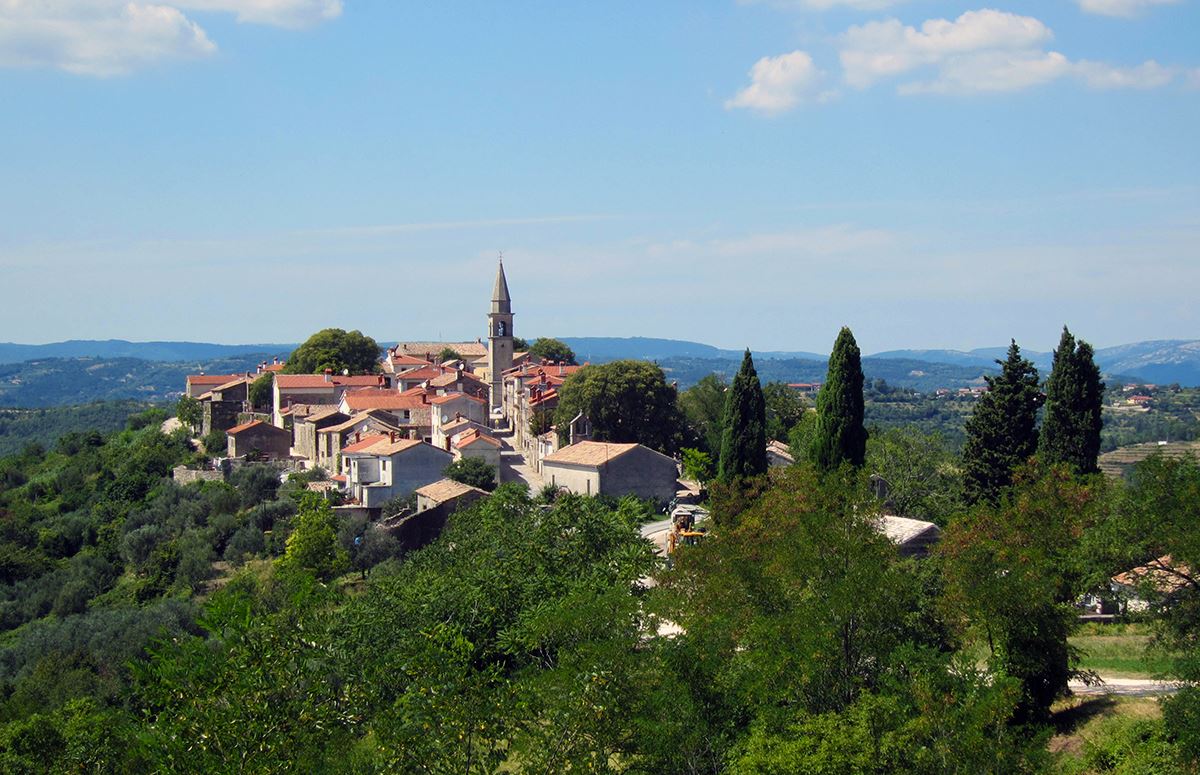
Draguć village in Istria – a true gem.
6. Gem
If I had a kuna for every time I described something as a gem, I’d be richer than Croatia is with all those gems in her possession. I’ve come to realise I can actually pinpoint my favourite topics and locations based on the number of times I referred to them as gems. In case anyone’s wondering: islands, national parks, any town in central Istria.
7. Mesmerising
It’s getting tricky: once you discard stunning, amazing, incredible, unforgettable etc, it gets harder to convey how captivating and impressive a certain sight can be. This mostly applies to – what a surprise – some other clichés I fall victim to: crystal clear/turquoise waters, unforgettable sunsets, Plitvice Lakes, or any video footage of natural scenery. In my defense, it’s not a lie. Is there anyone to have ever visited Krka National Park without getting completely entranced by the view of Skradinski Buk? Didn’t think so.
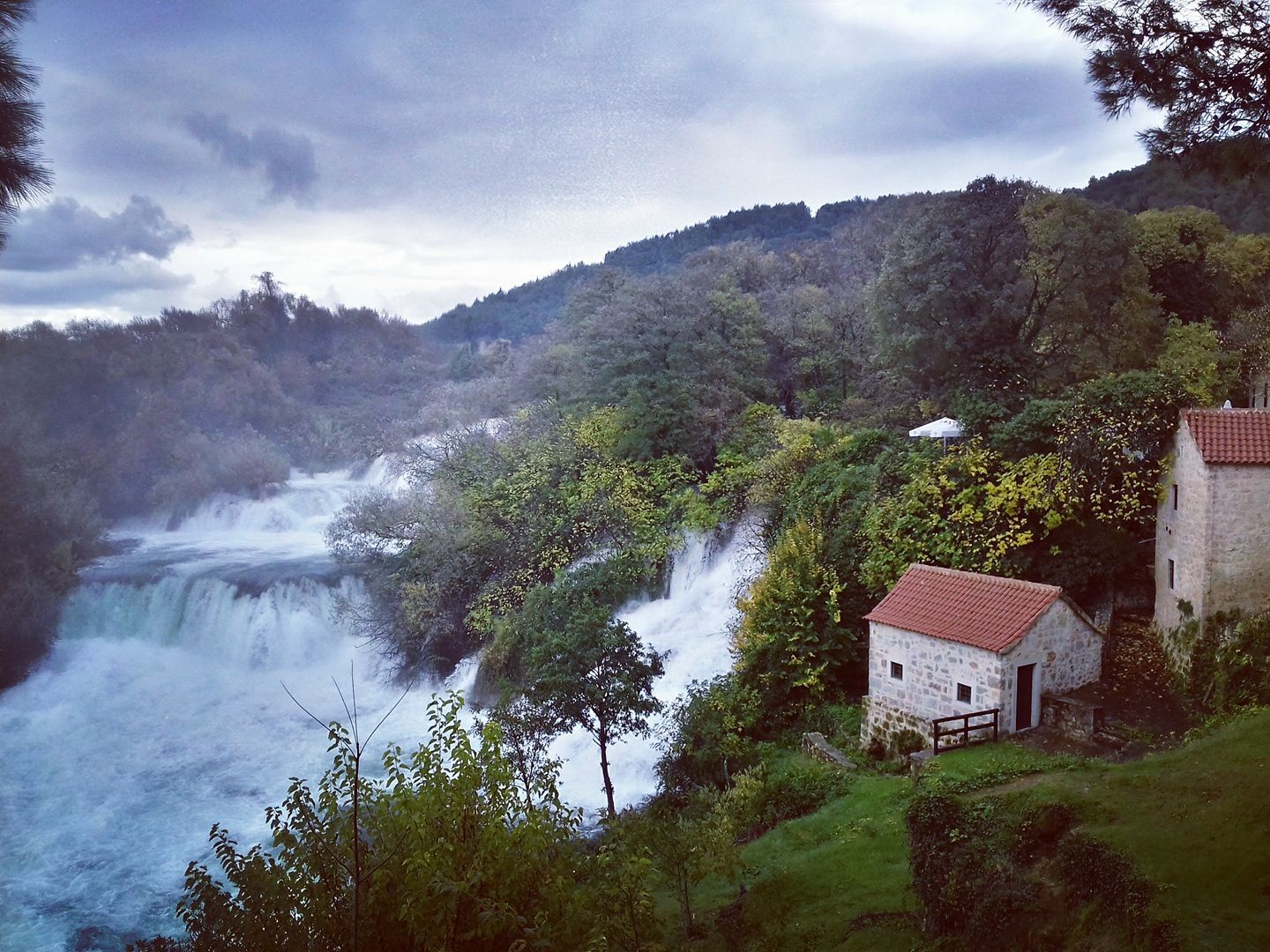
What do you do at Krka National Park? You stop and stare, mesmerised.
8. Breath-taking
See no.7, and maybe add Hvar and Dubrovnik in general.
9. Delightful
This one mostly applies to various events, especially folk festivals and related customs. So delightful! Of course, I don’t expect every single person out there to enjoy the same things in life I do, but I have a feeling most of us like to indulge in delicious food, wine and jovial atmosphere in company of good friends – what would you call that, if not delight?
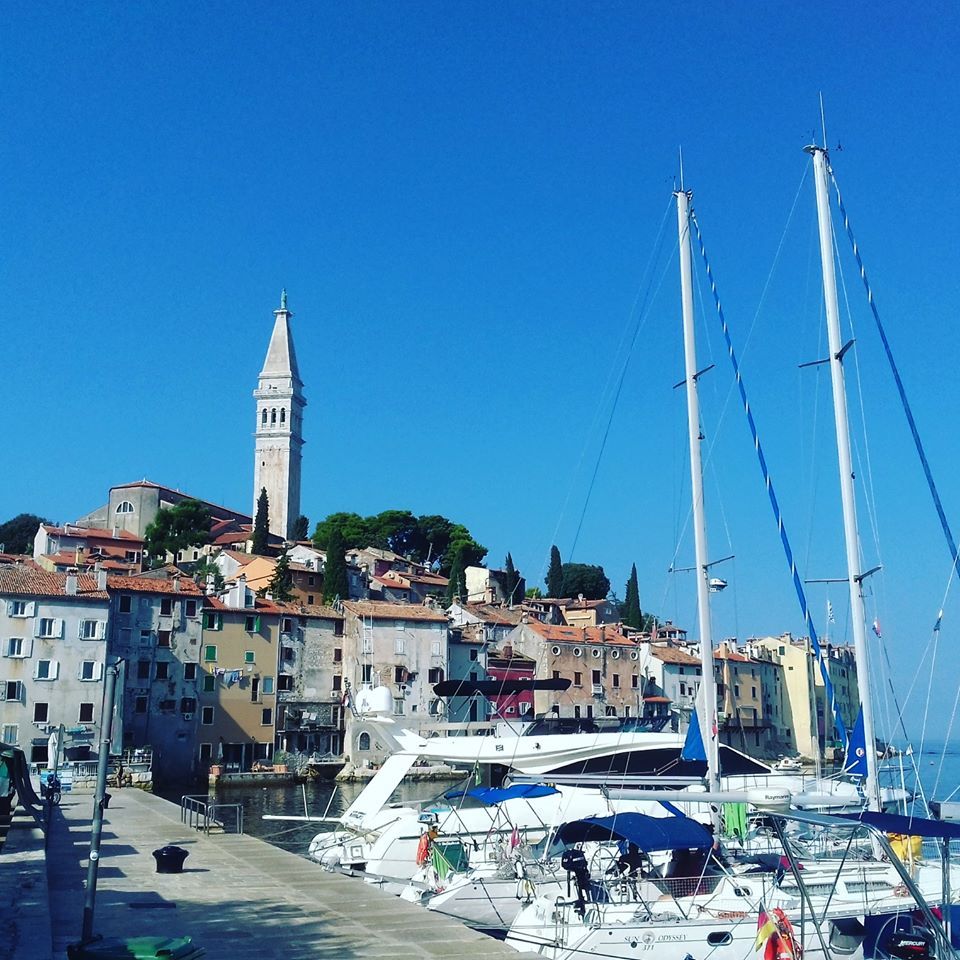
Rovinj, one of Croatia’s most attractive destinations.
10. Attractive
Leaving the best for last – and by best, I mean my staple adjective that somehow feels appropriate in every imaginable context. Whatever you’re referring to, attractive is a cozy blanket of a term you can always resort to if words fail you otherwise, and you won’t be blowing anything out of proportion. After all, it’s the main feature of every popular destination – it’s not called a tourist attraction for no reason.
While I could think of a few more examples, it might be better not to embarrass myself any further, especially knowing this definitely isn’t the last time you’ll be seeing such displays of admiration for Croatia’s countless gems. The season is coming – it’s going to get even more attractive around here. Mea culpa.

